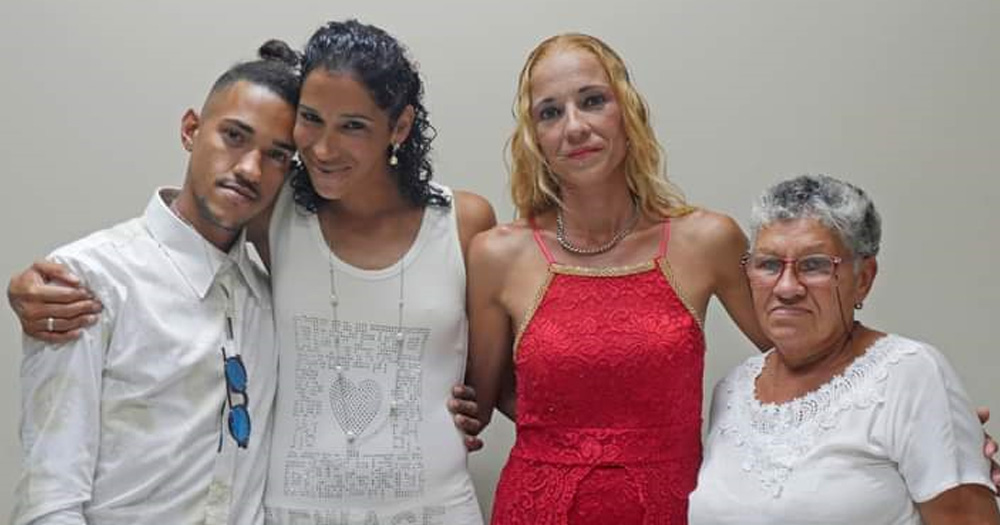It’s been exactly a month since Cuba approved one of the most progressive codes in the world protecting both women’s and LGBTQ+ rights. Known as the Family Code, the legislation set out to introduce marriage equality and legalise surrogacy and adoption for same-sex couples in Cuba, and on September 26, Alina Balseiro Gutiérrez, President of the National Electoral Council announced that 66.87% of voters (more than 3.9 million people) were in favour of the reform.
The referendum was announced earlier in the year, and now, the “yes” vote remains “valid and irreversible”, according to Balseiro Gutiérrez. It was a historic day for the country, with the Family Code now also including provisions addressing gender violence and the prohibition of child marriage.
Although authorities in Cuba did not reveal how many same-sex couples have gotten married since the reform, Francisco “Paquito” Rodriguez, one of the first Cuban LGBTQ+ activists, believes the number is at least a dozen, based on information from social media.
Lisset and Liusba are among this group of LGBTQ+ newlyweds, a lesbian couple who have been together for seven years. ABC News reported the excitement of the day they were married, joined by their two young daughters on the steps of the notary office.
Liusba Grajales revealed how it felt to finally be married, saying: “It’s a big day… Love is love, just the way it is. Without imposition, without prejudice … I don’t know whether I should laugh or cry. It’s a mix of so many strong emotions.” Her partner, 34-year-old dancer Lisset Díaz, succinctly agreed, commenting: “I feel proud… I’m amazed.”
Although the legislative change was approved by a landslide vote, receiving 70% support in the Cuban capital of Havana alone, it faced strong opposition from evangelical churches, who believed the law opposed the “traditional family” ideal. It was also reportedly opposed by some members of the queer community in Cuba, who said they refused to vote for something they considered to be a human right to begin with.
Liusba and Lisset, on the other hand, consider marriage to be a way of protecting their children in case something were to happen to them. “Many people in the community were against voting ‘yes’ because they don’t believe that they need some paper to tell them they have this. I think we do need the right, that it protects us,” said Liusba.
The pair live with their two daughters, Laura and Ainhoa. Ainhoa was born through insemination at home, as there was no access to fertility treatment for same-sex couples at the time.
They are one of the thousands of Cuban couples who can finally enjoy the right of marriage equality on the island. Article 36 of the Cuban constitution, enacted in 1976, inherently banned same-sex marriage, defining it at the time as a union between a man and a woman. In 2017, LGBTQ+ groups launched a campaign to repeal the ban, which was supported by Mariela Castro, daughter of former president Raul Castro.
SPONSORED CONTENT
© 2022 GCN (Gay Community News). All rights reserved.
Support GCN
GCN is a free, vital resource for Ireland’s LGBTQ+ community since 1988.
GCN is a trading name of National LGBT Federation CLG, a registered charity - Charity Number: 20034580.
GCN relies on the generous support of the community and allies to sustain the crucial work that we do. Producing GCN is costly, and, in an industry which has been hugely impacted by rising costs, we need your support to help sustain and grow this vital resource.
Supporting GCN for as little as €1.99 per month will help us continue our work as Ireland’s free, independent LGBTQ+ media.
